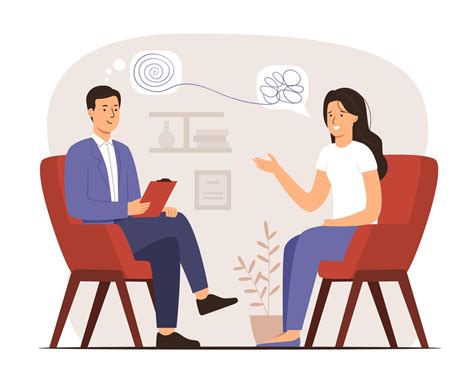
“Ick” to “Pick”? 15 Red Flags That Could Be Secret Green Lights!
Certain relationship “icks,” initially perceived as deal-breakers, may actually indicate deeper compatibility or positive traits, according to a recent exploration of evolving relationship dynamics. What once seemed like an immediate cause for rejection could signify quirks, vulnerabilities, or communication styles that, with understanding and acceptance, could foster stronger connections. This perspective challenges conventional dating wisdom and encourages a more nuanced evaluation of potential partners.
The traditional red flag/green flag binary often oversimplifies the complexities of human relationships. Many behaviors initially deemed undesirable may reveal underlying values or personality traits that, when properly understood, can enhance relationship dynamics. Several relationship experts and everyday individuals have shared anecdotes and insights suggesting that what starts as an “ick” can transform into an endearing or even admirable quality.
One common example is clumsiness. While some may view it as an immediate turn-off, it can also signal a lack of pretension or a willingness to be vulnerable. “Maybe they’re just not trying too hard to impress you,” says one relationship blogger. “It could mean they’re comfortable being themselves, which is a great sign.”
Another seemingly negative trait is excessive enthusiasm. While it might initially come across as overwhelming, it could indicate a genuine passion for life and a desire to share that excitement with a partner. Some individuals might find this endearing, viewing it as a sign of optimism and engagement.
A further example includes someone who is extremely organized or detail-oriented. Although some may find this rigid or controlling, it can also signal responsibility, reliability, and a commitment to order, which can be beneficial in managing shared responsibilities and long-term planning.
Even perceived flaws in communication styles can be re-evaluated. For instance, someone who struggles to express their feelings verbally might show affection through acts of service or physical touch. Understanding these alternative forms of communication is crucial for building empathy and fostering deeper connections.
The concept of turning “icks” into potential positives involves several key factors: self-awareness, empathy, communication, and a willingness to challenge conventional norms. Self-awareness allows individuals to recognize their own biases and preferences, preventing them from prematurely dismissing potential partners based on superficial judgments. Empathy enables individuals to understand the underlying motivations and emotions behind seemingly negative behaviors, fostering compassion and acceptance. Open and honest communication is essential for addressing concerns, clarifying misunderstandings, and establishing mutual expectations. A willingness to challenge conventional norms allows individuals to explore unconventional relationships and embrace unique personality traits.
Ultimately, the decision to embrace a potential “ick” depends on individual preferences, values, and relationship goals. However, by adopting a more open-minded and nuanced approach to dating, individuals can potentially discover hidden gems and build stronger, more fulfilling relationships. The article highlights 15 specific examples of “red flags” that can be reconsidered as possible “green lights,” offering practical insights and encouraging readers to re-evaluate their dating criteria.
15 Red Flags Reconsidered as Potential Green Lights:
- Clumsiness: Rather than viewing clumsiness as a lack of grace or coordination, consider it as a sign of authenticity and a lack of pretension. Individuals who are comfortable being themselves, even when they make mistakes, may be more genuine and approachable. Clumsiness can also indicate a willingness to be vulnerable, as they are not afraid to show their imperfections.
- Excessive Enthusiasm: While some might find it overwhelming, excessive enthusiasm can be a sign of passion, optimism, and a genuine zest for life. These individuals are often excited about new experiences and eager to share their joy with others. Their enthusiasm can be infectious, bringing energy and excitement into the relationship.
- Being Overly Organized: While some might perceive it as rigid or controlling, being extremely organized can also signify responsibility, reliability, and a commitment to order. These individuals are often dependable and detail-oriented, which can be beneficial in managing shared responsibilities and long-term planning.
- Awkwardness: Awkwardness, though initially off-putting, can indicate a refreshing lack of self-consciousness and a genuine personality. Instead of trying to fit in or impress others, they are comfortable being themselves, quirks and all. This authenticity can be endearing and create a more genuine connection.
- Nervousness: Nervousness might initially be interpreted as insecurity, but it could also indicate a genuine interest in making a good impression. These individuals are often thoughtful and considerate, wanting to ensure they are meeting your expectations. Their nervousness can be a sign of their sincerity and desire to connect.
- Over-Sharing: While some might find it off-putting, over-sharing can also be a sign of openness and vulnerability. These individuals are willing to be honest and transparent, sharing their thoughts and feelings without reservation. This openness can foster a deeper connection and create a more intimate relationship.
- Being Too Nice: Being “too nice” can sometimes be perceived as insincere or manipulative, but it can also indicate genuine kindness and empathy. These individuals are often compassionate and caring, wanting to make others feel comfortable and happy. Their niceness can be a sign of their genuine desire to connect and support you.
- Lack of “Coolness”: A lack of “coolness” or trendiness can be a sign of authenticity and independence. These individuals are not trying to conform to societal expectations or impress others with their style or possessions. They are comfortable being themselves, regardless of what others think, which can be refreshing and genuine.
- Being a “Homebody”: While some might find it boring, being a homebody can also indicate a desire for stability, comfort, and quality time together. These individuals value spending time at home, creating a cozy and relaxing environment. Their preference for staying in can lead to more intimate conversations and shared experiences.
- Being a “Nerd”: Being a “nerd” or having niche interests can be a sign of intelligence, passion, and a unique perspective. These individuals are often knowledgeable and enthusiastic about their interests, bringing depth and insight to conversations. Their passion can be infectious and inspire you to explore new things.
- Having Strong Opinions: While some might find it argumentative, having strong opinions can also indicate passion, intelligence, and a willingness to stand up for what you believe in. These individuals are not afraid to voice their opinions and engage in thoughtful discussions. Their strong opinions can challenge you to think critically and broaden your perspective.
- Being Overly Cautious: While some might find it indecisive, being overly cautious can also indicate thoughtfulness, responsibility, and a desire to avoid making mistakes. These individuals carefully consider their decisions, weighing the pros and cons before taking action. Their cautiousness can help you avoid impulsive decisions and make more informed choices.
- Being a “Mama’s Boy/Girl”: While some might see it as a lack of independence, having a close relationship with their mother can also indicate respect, loyalty, and a strong family bond. These individuals value their family and prioritize their relationships. Their close relationship with their mother can be a sign of their ability to form strong and lasting connections.
- Having a Quirky Sense of Humor: While some might not get it, having a quirky sense of humor can be a sign of intelligence, creativity, and a unique perspective. These individuals are able to see the humor in everyday situations and make you laugh in unexpected ways. Their quirky sense of humor can bring joy and levity to your life.
- Being Emotionally Open: While some might find it uncomfortable, being emotionally open can be a sign of vulnerability, honesty, and a willingness to connect on a deeper level. These individuals are not afraid to share their feelings and express their emotions. Their emotional openness can create a more intimate and fulfilling relationship.
In-Depth Analysis:
The reframing of “red flags” as potential “green lights” represents a significant shift in dating and relationship paradigms. Traditional dating advice often focuses on identifying and avoiding undesirable traits, creating a checklist of ideal qualities that can be unrealistic and limiting. This new perspective encourages individuals to look beyond superficial characteristics and consider the underlying motivations and potential benefits of seemingly negative behaviors.
The article’s emphasis on self-awareness, empathy, and communication highlights the importance of emotional intelligence in building successful relationships. Self-awareness allows individuals to recognize their own biases and preferences, preventing them from prematurely dismissing potential partners based on superficial judgments. Understanding one’s own emotional triggers and communication styles is crucial for navigating the complexities of interpersonal relationships.
Empathy enables individuals to understand the underlying motivations and emotions behind seemingly negative behaviors, fostering compassion and acceptance. By putting themselves in their partner’s shoes, individuals can gain a deeper understanding of their perspective and respond with greater understanding and support.
Open and honest communication is essential for addressing concerns, clarifying misunderstandings, and establishing mutual expectations. Effective communication involves active listening, expressing one’s needs and feelings clearly, and being willing to compromise. It is the foundation for building trust, resolving conflicts, and fostering intimacy.
The concept of challenging conventional norms is also crucial for embracing unique personality traits and exploring unconventional relationships. Societal expectations often dictate what is considered “normal” or “acceptable” in relationships, but these norms can be restrictive and outdated. By challenging these norms, individuals can create relationships that are authentic, fulfilling, and tailored to their specific needs and preferences.
The 15 examples provided in the article offer practical insights into how seemingly negative traits can be re-evaluated as potential positives. Each example includes a detailed explanation of the underlying motivations behind the behavior and the potential benefits of embracing it. For instance, clumsiness can be seen as a sign of authenticity and a lack of pretension, while excessive enthusiasm can be viewed as a sign of passion and optimism.
The article’s emphasis on individual preferences, values, and relationship goals underscores the importance of personal compatibility. What one person considers a deal-breaker, another might find endearing or even desirable. Ultimately, the decision to embrace a potential “ick” depends on individual circumstances and the specific dynamics of the relationship.
Background Information:
The concept of “red flags” and “green lights” has become increasingly popular in the context of dating and relationships, particularly with the rise of online dating and social media. These terms are used to describe warning signs or positive indicators that can help individuals assess the potential of a relationship.
Traditional dating advice often focuses on identifying and avoiding red flags, such as dishonesty, disrespect, or controlling behavior. These are typically considered deal-breakers that can signal potential problems in the relationship. Green lights, on the other hand, are positive indicators that suggest compatibility, such as shared values, good communication, and mutual respect.
However, the traditional red flag/green flag binary can be overly simplistic and rigid, failing to account for the complexities of human relationships. Many behaviors are not inherently good or bad but rather depend on the context, the individuals involved, and their specific relationship dynamics.
The article’s exploration of “icks” as potential “picks” represents a more nuanced and flexible approach to dating and relationships. It encourages individuals to look beyond superficial characteristics and consider the underlying motivations and potential benefits of seemingly negative behaviors. This perspective aligns with a growing trend towards greater self-awareness, emotional intelligence, and authenticity in relationships.
Expanded Context:
The trend of re-evaluating relationship “icks” is part of a broader cultural shift towards greater acceptance of individuality and diversity in relationships. As societal norms and expectations continue to evolve, individuals are becoming more open to exploring unconventional relationships and embracing unique personality traits.
This shift is also driven by a growing awareness of the importance of mental health and emotional well-being. Individuals are increasingly prioritizing their own needs and boundaries, seeking relationships that are supportive, fulfilling, and conducive to personal growth.
The concept of “icks” is closely related to the concept of “deal-breakers,” which are non-negotiable traits or behaviors that an individual cannot tolerate in a relationship. However, the article suggests that many “icks” are not necessarily deal-breakers but rather preferences or pet peeves that can be overcome with understanding and acceptance.
The decision to embrace a potential “ick” ultimately depends on individual priorities and relationship goals. Some individuals may be willing to overlook certain flaws or quirks in exchange for other desirable qualities, while others may have stricter criteria for compatibility.
The article’s message is not to ignore red flags or tolerate abusive behavior but rather to encourage a more open-minded and nuanced approach to dating. By challenging conventional norms and embracing unique personality traits, individuals can potentially discover hidden gems and build stronger, more fulfilling relationships.
Frequently Asked Questions (FAQ):
Q1: What exactly is an “ick” in the context of dating and relationships?
An “ick” refers to a seemingly minor or insignificant behavior, trait, or habit that suddenly triggers a feeling of aversion or disgust towards a potential or current partner. It’s often described as a gut reaction or a sudden loss of attraction, even if the person otherwise possesses many positive qualities. Examples include the way someone chews, a particular phrase they use, or even their choice of clothing. The key is that it’s highly subjective and often inexplicable.
Q2: How can I differentiate between a genuine red flag and a potential “ick” that could be a green light?
Distinguishing between a genuine red flag and a potential green light requires careful self-reflection and assessment. Red flags are usually indicative of deeper issues such as disrespect, dishonesty, controlling behavior, or a lack of empathy. These behaviors are consistently harmful and damaging to the relationship. In contrast, potential “icks” are often quirks or idiosyncrasies that, while initially off-putting, might reveal positive underlying qualities. Ask yourself: Is this behavior harmful or disrespectful? Does it violate my core values? If the answer is yes, it’s likely a red flag. If it’s more of a personal preference or pet peeve, it could be an “ick” worth reconsidering. Honest communication with the other person can also help clarify the motivation behind the behavior.
Q3: Is it possible to overcome an “ick,” and if so, how?
Yes, it is possible to overcome an “ick,” but it requires effort, understanding, and open communication. Firstly, examine why the particular behavior bothers you. Is it related to a past experience, a personal insecurity, or simply a preference? Once you understand the root cause, you can begin to challenge your initial reaction. Practice empathy by trying to understand the other person’s perspective and why they might engage in the behavior. Communicate your feelings honestly and respectfully, without blaming or criticizing. Focus on the positive qualities of the person and remind yourself why you were attracted to them in the first place. Over time, with conscious effort and a willingness to accept imperfections, the “ick” may diminish or even disappear. It’s important to note that not all “icks” are surmountable, and it’s okay to acknowledge that some behaviors are simply incompatible with your preferences.
Q4: What are some strategies for communicating effectively about “icks” without hurting someone’s feelings?
Communicating about “icks” requires sensitivity and tact. Avoid accusatory language or direct criticism. Instead, frame your concerns as personal preferences or observations, using “I” statements. For example, instead of saying “I hate the way you chew,” try “I’ve noticed that certain sounds are a bit distracting for me, and I was wondering if we could find a way to minimize them when we’re eating together.” Focus on the behavior rather than attacking the person’s character. Choose a calm and private setting for the conversation, and be prepared to listen to their perspective. Emphasize the positive aspects of the relationship and express your desire to find a solution that works for both of you. It’s also helpful to approach the conversation with a sense of humor, if appropriate, to lighten the mood and avoid defensiveness. Remember that vulnerability is key, and sharing your feelings honestly can create a stronger connection.
Q5: How does this concept of re-evaluating “red flags” apply to long-term relationships versus new dating scenarios?
The concept of re-evaluating “red flags” can be beneficial in both long-term relationships and new dating scenarios, but the approach may differ. In long-term relationships, where there’s already a foundation of trust and commitment, re-evaluating “icks” can help couples deepen their understanding of each other and address long-standing issues. It’s an opportunity to challenge ingrained assumptions and develop more compassionate responses to each other’s quirks. In new dating scenarios, the process is more about assessing potential compatibility and avoiding premature judgments. It encourages individuals to look beyond initial impressions and consider the underlying qualities that might be revealed over time. In both cases, the goal is to cultivate greater self-awareness, empathy, and open communication, leading to more fulfilling and authentic connections. However, it’s crucial to remember that re-evaluating “icks” is not about tolerating harmful or abusive behavior, which should always be addressed with appropriate boundaries and professional help if necessary.








